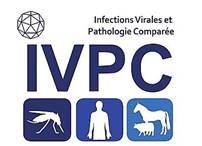PGD du projet "REtroViral Emergence @farm"
Résumé
Small ruminant oncogenic beta-retroviruses induce lung and nasal cancers in sheep and goat. Mostly sporadic, severe outbreaks of cancer with a high mortality rate and transmission also occur. JSRV induced lung adenocarcinoma was recently requalified as emergent by the OIE. Despite their economic impact worldwide, these diseases are neglected with few to no regulation and epidemiological surveillance. The control of these infectious diseases, with neither vaccine nor treatment available, can only rely on effective measures to limit the diffusion of these deadly viruses. The objectives of this project are to characterize the persistence and transmission of this airborne transmitted virus and to determine if we could identify a viral factor that may explain the switch between sporadic vs epidemic cancers. To answer these questions, we will rely on our biobank of cancers from JSRV and ENTV-2 infected animals and prospective samples via our network of veterinarians, breeders and technical partners. We will investigate the presence of retroviral genomes in environmental samples in the farm but also quantify the virus shed by symptomatic and asymptomatic animals. To improve and facilitate the surveillance of beta-retroviruses, we will test if wastewater or stools could be used as an alert tool of JSRV and ENTV circulation. The second part of the project will question the nature of the retroviruses associated with high prevalence of cancers. To identify viral variants or molecular signatures associated with high or low pathogenicity phenotypes, we will sequence and compare viruses circulating in flocks with sporadic or epidemic cancers. Finally, we will determine if the oncogenic switch might be explained by a change in the viral expansion in vivo. All together this project will give us the scientific basis to prevent the emergence of oncogenic beta-retroviruses.
Domaines
Sciences du Vivant [q-bio]| Origine | Fichiers produits par l'(les) auteur(s) |
|---|



